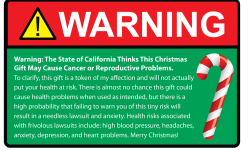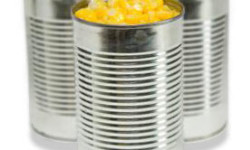Back-to-School Shopping? Here’s How You Can Keep Your Kids Healthy And Safe.

Parents can hardly search for the best back-to-school deals without being bombarded by news reports and blog posts about “highly toxic chemicals” in school supplies. It doesn’t get much better at the store either, with many brands marketing their products as free from harmful chemicals. That means the other backpacks, markers and lunchboxes are full them, right?
Wrong.
We’re going to clue you in on a secret: these claims don’t mean much, because the products were safe to begin with.
Consider one scare tactic by the Center for Health, Environment & Justice, which makes waves every year telling concerned parents to avoid backpacks, binders, notebooks and art supplies containing phthalates. The diverse group of chemicals, which are also called plasticizers, make plastics flexible and prevent cracking or breakage.
A handful of phthalates can impact rodent hormones when the animals eat them in very high doses – the key phrases being rodent and very high doses. It should go without saying that while rodent studies can inform toxicologists about which substances warrant a second look, rats are not humans and their biological processes shouldn’t be assumed to function in the same way. Mice, for example, don’t get addicted to nicotine. Any physician could tell you the same does not hold for people.
Importantly, in more than a decade of monitoring phthalate exposure in both children and adults, U.S. Centers for Disease Control and Prevention (CDC) data indicates that human exposure is incredibly low: Tens, hundreds, and in some cases thousands of times too small to ever cause a health problem.
Short of an elementary schooler swallowing his backpack whole, parents don’t have anything to fear.
Rather than hunting for products marketed as “chemical-free,” parents can make a far greater impact on their child’s health this school year by practicing these good habits:
- Remind your child that handwashing isn’t just for after the restroom. Kids (and parents!) should wash their hands for at least 20 seconds before eating or preparing food, petting animals, and being around someone who is sick.
- Vaccinating your family against contagious diseases like measles, mumps, rubella, chicken pox, and whooping cough is the most effective way to prevent their spread (not to mention preventing the dreaded late-night urgent care visit.)
- The CDC recommends children get at least one hour of physical activity each day. Most time should be spent on aerobic activities (like running or rollerblading), but muscle-strengthening activities (like tug of war or swinging) and bone-strengthening activities (like jump rope and basketball) are important too. And heck, why leave the fun up to the kids? Show junior a thing or two on the field.
- Our bodies work best when they’re fuelled with the right vitamins, minerals, proteins, fats and carbohydrates to perform necessary biological processes. Even picky eaters need a balanced diet to get the nutrients they need to grow up strong and healthy. ChooseMyPlate.gov offers great meal and snack ideas, and tips to get picky eaters the nutrients their bodies need.





